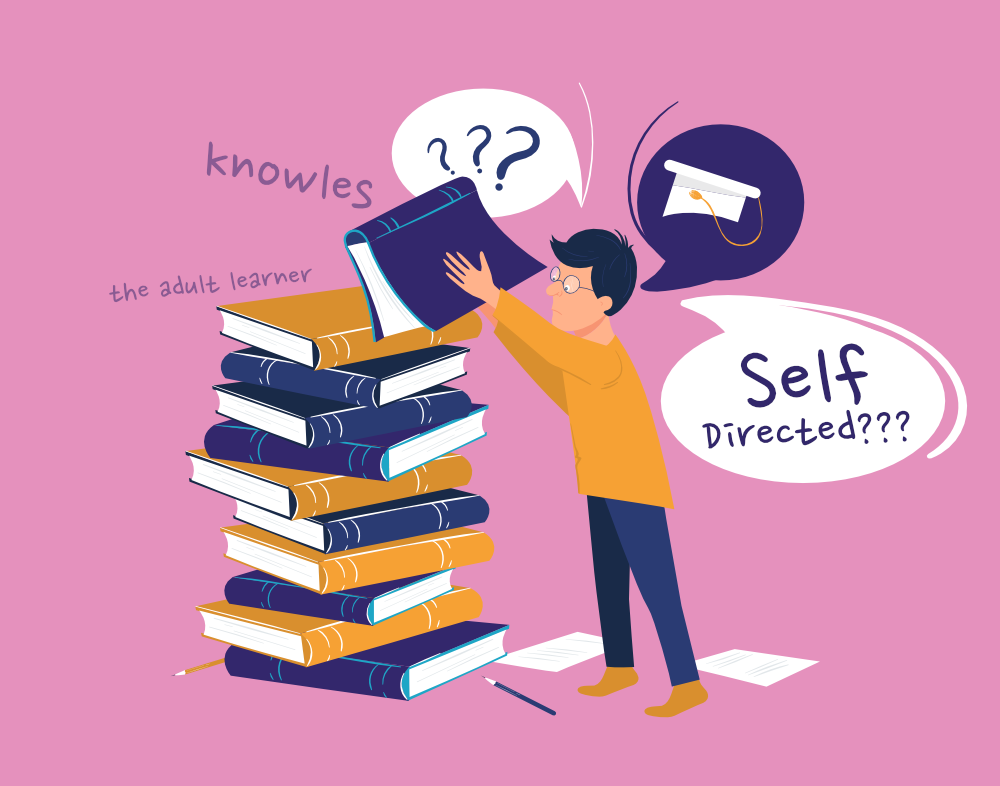Malcolm Knowles’ adult learning principles are often misunderstood.
Adult learners need to feel they are in control (of course they do). That doesn’t mean they should be left to flounder without guidance.
An adult learner having control of their learning is a different concept to them being provided with clear direction and instructions to help them learn.
We as adults, like children, need to feel secure and not be left to flounder in confusion.
One of the most important points in Knowles’ adult learning theories is the fact that learners need to understand how the learning applies to them. As a result they can find motivation and take control of their learning.
Think about how we apply the skills of driving a car. We have a very specific set of instructions and rules to follow in order to learn to operate the vehicle safely and effectively, but ultimately, we use our driving skills to solve our own problem (getting to the place we want to get to).
Knowles said adults are problem-focused. Like everyone, they learn by doing. That means they will start with a “problem” that applies to them and work backwards to find a solution.
The difference between children and adults is the amount of experience they have. Children have little experience, so they are prepared to “learn forwards” – to be given the information, trust it, and take it in even though it doesn’t mesh with any experience they have. Adults – because they have experience – first need to relate the learning to something they already know.
This article was adapted from an email from Sandy Welton and is published here with Sandy’s permission.

Case Studies
Accellier Success Stories
Dave Hitchcock shares his Accellier story
Watch this video and learn more about how Accellier Education helped Fireground Leadership and Training with their Certificate IV in Training and Assessment qualifications.
Celebrating the success of the E-Learning Facilitator Micro-credential (TAEDEL501)
Learn more about our TAEDEL501 Facilitate E-Learning Micro-credential.
Accellier and the NSW Department of Planning, Industry and Environment
Accellier was approached to assist over 50 highly skilled professionals within the organisation achieve Certificate IV in Training and Assessment.
Department of Planning, Industry and Environment